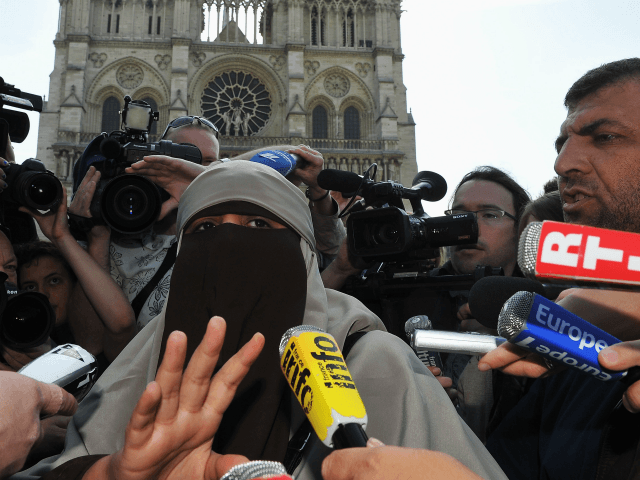The United Nations (UN) Human Rights Committee has given France six months to revise its ban on the full face veil in public, ruling the law to be “oppressive” against Muslims.
A panel of 18 “experts” made the judgment on Tuesday, claiming that the 2010 law, which states that “no one may, in a public space, wear any article of clothing intended to conceal the face”, had “violated” the human rights of two Muslim women fined by France in 2012 for wearing the niqab.
Chairman Yuval Shany said that while he and “many” of his peers on the panel personally see the garment as “a form of oppression against women”, the human rights committee considered that a general ban on wearing the niqab in public was “too sweeping” and “disproportionately harmed the petitioners’ right to manifest their religious beliefs”.
“The Committee also concluded that the ban, rather than protecting fully veiled women, could have the opposite effect of confining them to their homes, impeding their access to public services and marginalising them,” according to a statement published by the UN body.
It also argued the French government “had not adequately explained why it was necessary to prohibit this clothing”, reporting that the panel “was not persuaded by France’s claim that a ban on face-covering was necessary and proportionate from a security standpoint or for attaining the goal of living together in society.
The UN ruling that “France violated the human rights of two women by fining them for wearing the niqab” puts the committee at odds with the European Court of Human Rights (ECHR), which has previously upheld the country’s full-face veil ban on a number of occasions.
Demanding that France “compensate the complainants” and take measures “to prevent similar violations in the future, including by reviewing the law in question”, the panel has set a deadline of 180 days for the nation to provide a “follow-up report” detailing “action it has taken to implement the Committee’s decision”.
Committee member Ilze Brands-Kehris told AFP that France is “under obligation” to follow the recommendations having ratified international UN rights treaties, adding that the law has “a vast disproportionate effect” on Muslims because the majority fined “have been women wearing the niqab”.
While the UN body does not have enforcement powers, France’s signing of an optional protocol of the International Covenant on Civil and Political Rights (ICCPR) means the country is obliged under international law to comply “in good faith” with the panel’s decisions, reported Middle East Eye.
In May, Denmark became the latest of a growing list of EU nations to join France in outlawing the wearing of face coverings in public, after similar restrictions were passed in countries including Belgium and the Netherlands.
While measures against the Salafism-linked garment in Europe are regularly claimed to be an affront to Muslims, including by academics behind a “counter Islamophobia toolkit” launched in the European Parliament last month, action to outlaw full-face veils in non-Western countries, including some with Muslim majority populations, have attracted little fuss from campaigners.

COMMENTS
Please let us know if you're having issues with commenting.